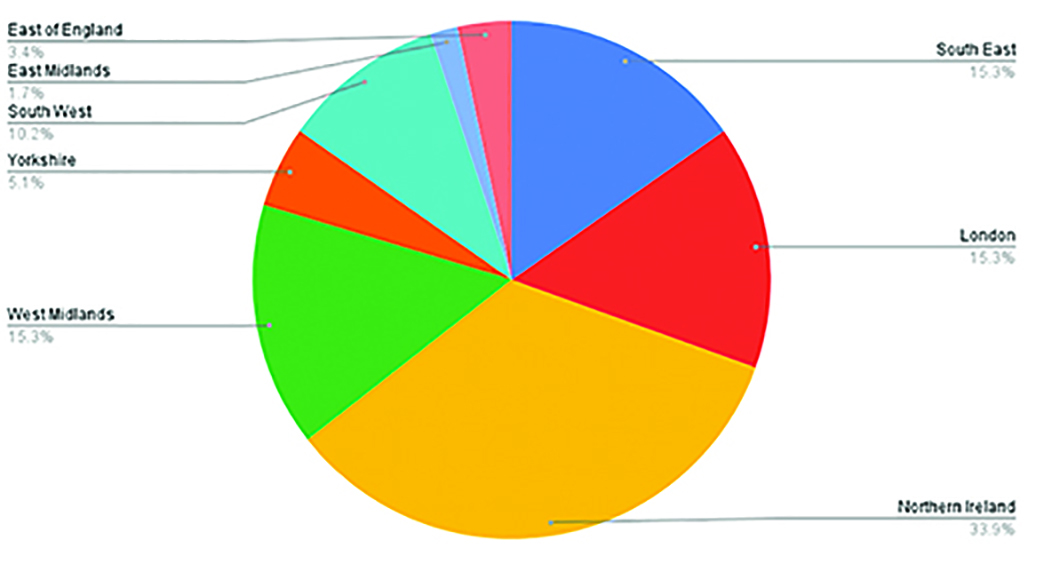
On-call respiratory physiotherapy is provided by NHS Trusts for acutely unwell patients outside of normal working hours [1]. Training is provided before undertaking on-call duties. However, many physiotherapists find on-call situations stressful and report a lack of confidence to undertake these duties. Simulation provides a safe learning environment to develop on-call skills, when supported by trained faculty [2]. Access to faculty training is needed [3]. Therefore, a national course was developed for experienced physiotherapists looking to develop their skills as simulation faculty. It was aimed at participants with limited experience as simulation faculty, wanting to develop an on-call simulation provision at their institution.
A team of physiotherapy and simulation faculty experts designed a one-day course. Participants completed all six modules of the national “Becoming Simulation Faculty” E-Learning programme as pre-learning. The course included discussions about educational theories, scenario design, psychological safety and debriefing models. In a round-robin format supported by a mentor, participants ran an on-call scenario (prebrief to debrief), were active participants or observers, and supported a meta-debrief discussion. Quantitative and qualitative data from pre- and post-course questionnaires were collected and analysed.
The course ran three times in England (n=2) and Northern Ireland (NI) (n=1). 66 learners completed the course, from a wide geographical range (Figure 1).
Pre-course findings:
• Respondents with no simulation experience as a learner: 35%(England); 77% (NI)
• Respondents with no simulation faculty training: 65% (England); 94% (NI)
• On-call simulation training being delivered at participant organisation: 67% (England); 12% (NI)
Two main themes about why participants attended the training were generated: “To set up or support an on-call simulation service, and/or to utilise existing simulation resources” and “Build knowledge and confidence in simulation methods (including technology, scenario writing, debriefing, evaluation)”. With a third theme in the England courses: “Collaboration/ sharing best practice/ improving existing services/ standards”.
Post-course findings:
All respondents (89% response rate) rated the course as Excellent (78%) or Good (22%), with positive themes regarding “the practical aspects of the course” and the “peer and experienced faculty discussions”. Participants wanted more training on “scenario writing”, “debriefing” and “advanced methods”.
This course highlighted the need for faculty training within respiratory physiotherapy to meet current simulation standards. It was well received. Further work is needed to explore support for sustainable faculty training in the physiotherapy workforce. Research to explore the impact of this course and on-going workforce training needs within simulation is underway.
As the submitting author, I can confirm that all relevant ethical standards of research and dissemination have been met. Additionally, I can confirm that the necessary ethical approval has been obtained, where applicable.
1. National Institute for Health and Care Excellence (2007). Overview | Acutely ill adults in hospital: recognising and responding to deterioration | Guidance | NICE. [online] Nice.org.uk. Available at: https://www.nice.org.uk/guidance/cg50.
2. Mansell, S.K., Harvey, A., & Thomas, A. (2020). An exploratory study considering the potential impacts of high-fidelity simulation-based education on self-evaluated confidence of non-respiratory physiotherapists providing an on-call respiratory physiotherapy service: a mixed methods study. BMJ simulation & technology enhanced learning, 6(4), 199–205. https://doi.org/10.1136/bmjstel-2019-000444
3. Mansell, S.K, Barnfield, E., Bendall, A., Cork, G., Thomas, A.J, Grafton, K., Eckersley, G., Lewko, A. (2024) Simulation Based Education in pre-registration and postgraduate respiratory physiotherapy: An ACPRC position statement. Journal of the Association of Chartered Physiotherapists in Respiratory Care. 56(3), 46–48. https://doi.org/10.56792/XRTY3249
Two of the courses were commissioned by the Association of Chartered Physiotherapists in Respiratory Care (ACPRC) and one of the courses was commissioned by the HSC Clinical Education Centre in Northern Ireland.

